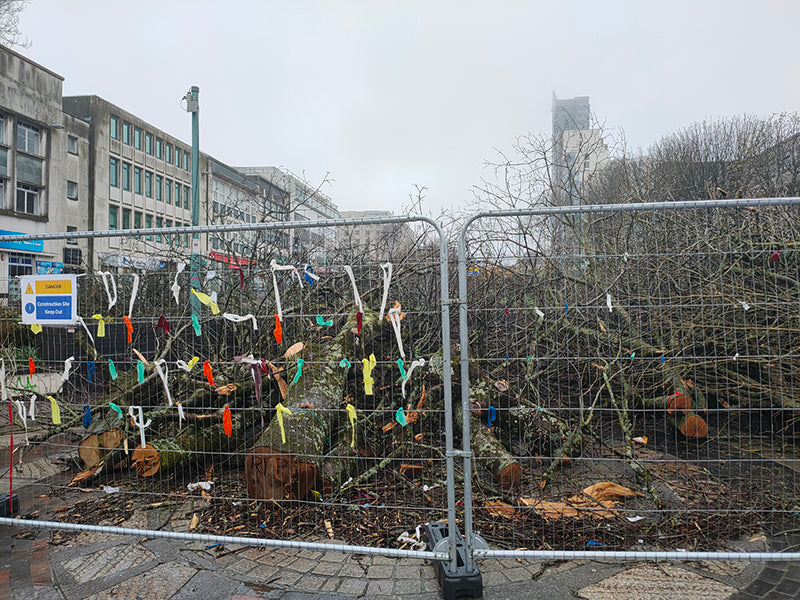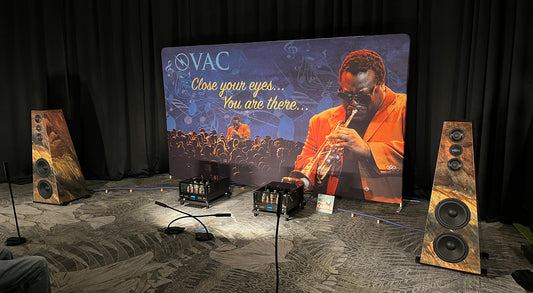It seems to me that in recent years the lyrics to Joni Mitchell’s “Big Yellow Taxi” have never been more relevant when looking through the lens of musical instrument shop retailers. What was it that Joni sang?
“Don’t it always seem to go/
That you don’t know what you’ve got till it’s gone”
These are poignant lyrics from a personal relationship point of view alone, but the significance of this sentiment has of course resonated through the decades. Perhaps this idea of loss has been exemplified in some of our retail sectors, some of which now resemble something of the aftermath of a forest fire. However, after a forest fire, at least there is a subsequent revitalization of essential minerals and nutrients back into the ecosystem, which can then provide substantial and long-lasting resources for the next generation of blossoming seeds, striving saplings, and new cultivators.
Where are these blossoming seeds in retail circa 2023? Apart from the massive-footprint coffee shops and bars which seem to have become essential modern-day pit stops, some brave new entrepreneurs have struck out with fresh concepts borne from their time ruminating during the pandemic lockdown. In Plymouth city center, UK, my original hometown, I’m now seeing new artistic expressions in the form of local talented recycled clothing designers, deeply detailed illustrations from graphic artists, and new market stalls selling a wider variety of foods from all over the world than ever used be the case. Admittedly, none of these things are game changer-new per se, but they perhaps are more reflective of the increasing volume of independent stores trying to make a go of their skills, passions, abilities, and a pure drive to simply go for it.
Other growing seeds may include the hundreds of trained and government-supported retail apprentices in the UK who have gained new formal academic qualifications in music instrument retail knowledge and music instrument retail skills from BTEC (the Business and Technology Education Council) and NVQ (National Vocational Qualification).
Who are these striving saplings? These are the resilient music instrument retailers that have weathered the storms of the pandemic C-word, and have continued in their determination to survive despite the odds stacked against them. The trend toward growth is also literal – some of our garden centers and outdoor sporting equipment suppliers in the UK seem to have capitalized on the staycation mentality, not least of all borne from the recent reappraisal of what one holds truly nearest and dearest to one’s heart: the enjoyment of natural surroundings, listening to inspiring music, eating good food and of course, time spent with family and friends.
My immediate neighbor’s wife works in a local garden center and I am reliably informed that business has never been booming so much as it is now. So much so that during our recent Easter period they have had to open new tills. Additionally, where my parents live, (one hour away by car), the local garden center there has had a massive structural extension and an internal overhaul of the former premises. It is now so popular that you are lucky to get a coffee in their coffee shop, and if you want to eat in the restaurant, making a reservation is now non-negotiably essential. I don’t even spend much time in garden centers! It’s just that they are apparently bursting at the seams with popularity and importantly, profitable sales. I have never seen so many different varieties of needle-nose pruning shears in my life.
Who, then, are the new cultivators? Aside from the aforementioned retail establishments, they include those that hope to make a difference in how High Street (Main Street to those not in the UK) and other retailers will perform in the future. New urban developments, architectural plans and cityscape design engineers have labored over countless iterations of what will look attractive and entice new shoppers into town to spend their hard-earned.
However, will they all succeed?
Perhaps only as much a budgie with no beak. One example is our local Barcode Cinema complex, which has been running at a loss for several years since its inception, and it appears that the novelty factor of its large screens and IMAX presentations will not outlive its anticipated projected turnover. This is a 53-million-pound leisure and entertainment development spanning more than 100,000 square feet. It’s not succeeding, despite new parking lots (400 spaces), an abundance of fast-food restaurants and even a neighboring traditional barber shop.

A touching tribute to the lost trees of Plymouth’s retail town center. Photo courtesy of Russ Welton.
Take it away, Joni:
“They paved paradise, and put up a parking lot
(Ooh, bop-bop-bop-bop, ooh, bop-bop-bop)”
I’ve personally experienced the loss of treasured local High Street music instrument retailers. One is the intended closure of Mansons Guitar Shop of Exeter, and another the somewhat pained transition period of urban redevelopment plans within the neighboring city of Plymouth. (Editor Frank Doris and Copper contributor Jay Jay French have personal experience with the glory days of the music stores on 48th Street in Manhattan and that street’s gradual demise, the result of increasing rent costs.)
I have so many fond memories of Mansons Guitar Shop. I recall the abounding joy I felt when I first learned that they would be branching out to a second store in Plymouth. (Having one local, albeit small store, tunefully named Vibes, in town was already exciting enough.) You know the buzz! A shop dedicated to selling guitars. I was that kid with his nose pressed up against the window almost making my face ache, freezing into dumb expressions as I fawned over the droolworthy instruments inside. Garth Algar had nothing on me! If you think I’m kidding, you should know that when that Plymouth branch came up for sale, we (as a family business) bought it.
Returning to the Exeter store, though – I recall the colorful Joe Satriani Ibanez signature model guitars finished in Joe’s own handiwork. I have an abiding memory of picking up for the first time a Steve Lukather Mark I signature model Music Man guitar and being blown away by its amazing playability. The small V-shaped, tapered neck profile, small frets and low action coupled with a Floyd Rose tremolo system and active EMG pickups made for an ultimate ‘keeper’ instrument. I regretted having to sell the “Luke” models I had owned over the years as necessity dictated, and re-learned just how good a thing it was when I was able to repurchase a re-issue of the Mark I some two decades later. Mansons’ reputation was made under their own brand name, and by making signature instruments for people like John Paul Jones of Led Zeppelin and Matt Bellamy of Muse. I enjoyed playing one of the original seven-string guitars that was eventually sold to the Muse front man.
So, it was with some sadness that I learned that plans to sell the Exeter branch of Mansons to new owners was on the horizon in September of last year. It was sadder still to learn that the Manson’s partners had ultimately decided to close the store after a glorious run of 31 years, when the lease expires this June.
Mansons’ Hugh Manson (an excellent custom guitar maker) stated: “retail, particularly in Exeter, is becoming incredibly challenging. Exeter City Council seems to be hell-bent on destroying any independent retailer. You just have to look at transport, parking, rates and so forth. Who is going to pay £2.60 to park to buy a set of strings?”

Mansons' DL-OR Origin Reissue guitar, as used by Matt Bellamy of Muse. From a Mansons Guitar Shop news release.
Although these observations are quite true, they highlight perhaps a bigger challenge:
Do we prefer to buy online for convenience or just prefer to buy online by default?
This often is the case whether it’s convenient or not, despite taking in to account things like delivery issues and receiving items not as described, not to mention protracted and contested insurance claims when returning goods that are damaged by couriers. Online purchasing appears to be the default option of so many younger customers, and online retailers pander to this demographic, suffering reduced profit margins as a result to compete with Amazon.
Thinking about Hugh Manson’s observations further – given the rise in popularity of Patreon-supported YouTube channels, where regular viewers can choose to financially support these specialist equipment review (or other) channels for their informative or simply entertaining content – wouldn’t it be good if everyone adopted the same mentality towards supporting our specialist music stores? I’m not saying we should all subsidize their existence with a monthly contribution, but rather, refresh our perspective on how valuable these establishments really are.
Surely, they are worth purchasing from, whether via their own online websites or in person, by virtue of the fact that they have knowledgeable and informative staff and can offer a higher level of service than some faceless online provider. The tactile experience of hearing, feeling and playing a musical instrument which has been properly set up for your own delight is a precious commodity, and something that should not be taken for granted, like listening to a well-set-up stereo system you are considering purchasing, or simply enjoying audio demonstration perfection,
Joni’s words are so significant that I think we could take her lyrics a step further. We could say that some customers won’t know what they’ve got until it’s gone, but how many of them knew what they had lost in the first instance?
Header image: Plymouth City Center Urban Redevelopment Project, April 2023. Courtesy of Russ Welton.



